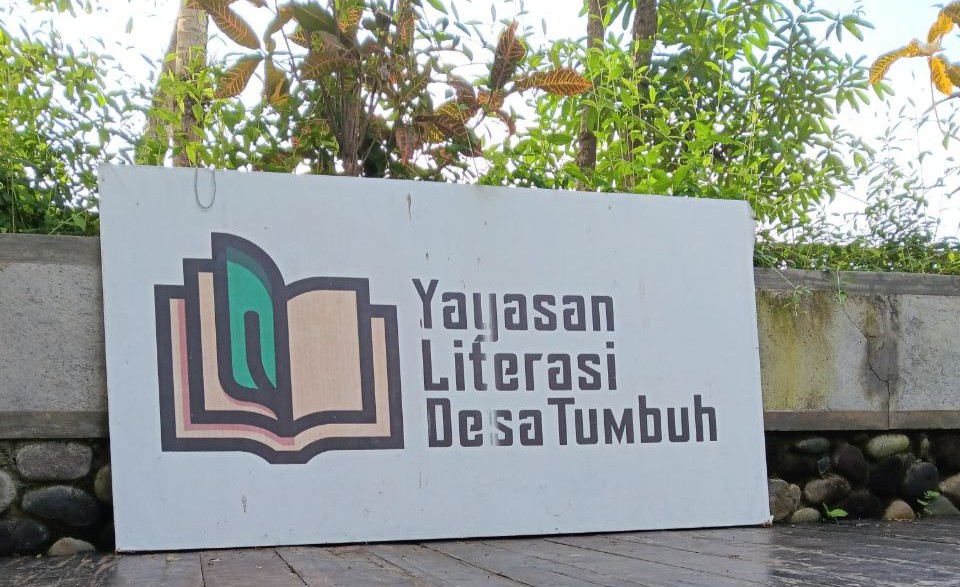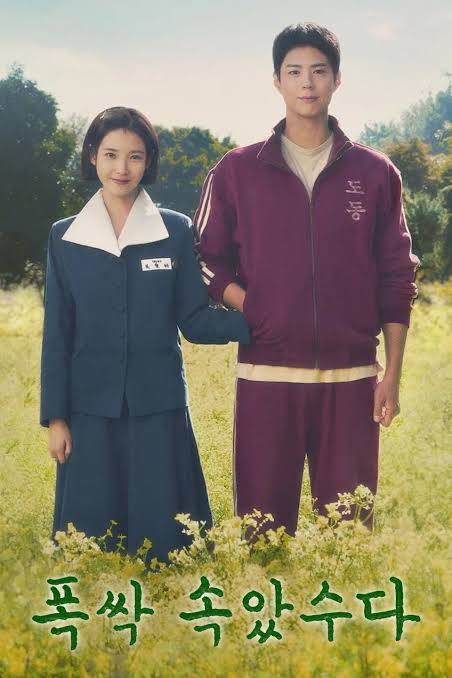Strengthening the Women, Peace and Security (WPS) Agenda Through Local Wisdom
Author: Ramita Paraswati
“Think Globally, Act Locally: A Way to Strengthen Women, Peace and Security Through Local Wisdom“
One unforgettable moment occurred in Tebet, Indonesia, on September 28, 2022, when a mother named Niken Prameswari dispersed a group of students about to engage in a violent brawl using nothing but a broom. A year later, a similar act of courage occurred in Curug, Serang City, when another woman, Nurjanah, used a laundry bamboo stick to disperse students with the same violent intent. These actions successfully thwarted the plans of these students to initiate a brawl.
These actions by Niken and Nurjanah achieved at least two significant outcomes. First, they prevented potential casualties. According to several national news sources, student brawls have previously resulted in fatalities. The loss of even one life is a devastating blow to the victim’s family. Second, they helped prevent material damages. During such violent events, private and public property often becomes collateral damage due to heightened emotions and loss of control. Thus, student brawls can cause both moral and material losses to individuals and communities alike.
What Niken and Nurjanah did were acts of individual initiative. Despite highlighting the popular phrase “The Power of Emak-emak” (mothers’ power), no collective action emerged from other women in their communities. In Nurjanah’s case, although she asked neighbors to report the incident to the police, no report was ultimately made, according to local authorities. This indicates a lack of collaboration, especially among women, to address conflict within their communities.
These incidents, however, illustrate that women can play a crucial role in preventing conflict in their surroundings. This resonates with the global agenda that promotes women’s involvement in peacebuilding, initiated through the adoption of UN Security Council Resolution 1325 in 2000. The resolution emphasizes four key pillars: participation, protection, prevention, and relief and recovery. On a regional level, ASEAN has endorsed the Women, Peace and Security (WPS) agenda since December 5, 2022. In Indonesia, the second phase of the National Action Plan for the Protection and Empowerment of Women and Children in Social Conflicts (RAN P3AKS) is currently underway.
It’s important to note that conflict is no longer confined to the domain of war. It can also emerge from non-traditional security threats such as climate change, food and nutritional insecurity, environmental degradation, disaster response, healthcare access, and more. Addressing these requires systematic strategies and inclusive participation, especially from grassroots communities.
In this context, rural women hold immense potential to drive the WPS agenda forward. Away from the complexities of metropolitan life, rural environments foster collective action through mutual cooperation or gotong royong. For instance, in various villages around Solo, Central Java, there are several women’s groups that, if structurally empowered, could serve as effective models for other regions even across national borders. This grounds the WPS agenda in local values and practices.
Social Sector
Monthly social gatherings known as arisan (rotating savings groups) are common among rural women. These gatherings are more than financial arrangements; they serve as spaces for social bonding and community harmony. There are also “goods arisan” like arisan nyapu, where pooled resources are used to buy communal items like brooms or cooking utensils for events such as weddings or Eid celebrations. These activities foster social cohesion and serve as a resource base for communal needs.
Health Sector
Women’s groups, particularly those under the Family Welfare Movement (PKK), play a pivotal role in public health and empowerment. They coordinate regular posyandu (integrated health services) for infants and the elderly, inviting healthcare workers to provide checkups. There are also weekly or bi-weekly fitness programs for seniors, and some women join sports clubs like Kartini or Gendhis badminton groups. When someone falls ill, instead of visiting individually, the group pools money to support the sick, easing the family’s financial burden.
Economic Sector
Rural women’s groups also advance economic independence through several initiatives. First, they are educated on medicinal plants, encouraged to grow them in their yards for easy access. Second, to support household food security, they are taught to grow vegetables using available land or polybags. The government often supports this with seed distribution. Third, these women are trained in entrepreneurship—learning how to process, package, and market their products, such as taro chips in Putatan village, targeting neighboring villages through word of mouth. These efforts boost both food resilience and entrepreneurial skills.
Religious Sector
Almost every village has a women’s religious study group. Held weekly in local prayer spaces or rotating homes, these gatherings strengthen both spiritual life and social ties. Occasionally, they organize larger-scale events or communal pilgrimages, fostering inter-personal relationships and enhancing shared values of peace based on religious teachings.
Cultural Sector
Women are central to organizing cultural traditions such as sadrananan, suronan, pitonan, and selametan. They prepare traditional dishes and help coordinate events. While some view these traditions as spiritual offerings, many now see them as cultural practices fostering tolerance and pluralism. Prayers used in these ceremonies are Islamic, said in Javanese for accessibility, and imbued with values of gratitude. They also help promote the use of local ingredients, further reinforcing local food security.
Action Plan and Policy Implications
These rural women’s initiatives are not unique to Solo and can be found across Indonesia. This indicates fertile ground for the implementation of the RAN P3AKS strategy. The key is to integrate national-level technical directives with existing local values.
Several points must be addressed:
- Localization of RAN P3AKS into regional regulations is essential. As of now, only a handful of provinces have adopted regional action plans (RAD), including East Java, Lampung, Bengkulu, West Kalimantan, Central Sulawesi, NTB, NTT, Papua, and Central Java. More provinces should be encouraged to follow.
- A structured monitoring and evaluation mechanism must be established to ensure effective implementation and accountability.
- RAN P3AKS working groups (Pokja) should collaborate with village-level PKK groups, incorporating WPS-related values into training and activities to enhance reach and effectiveness.
By addressing these points, the WPS agenda can become a lived reality for women in rural areas allowing them to contribute directly and collectively to national peacebuilding, particularly in mitigating non-traditional security threats. This way, isolated acts of bravery, such as those seen in student brawl interventions, can transform into coordinated community peace efforts.
References:
AMAN Indonesia. (2023, April 5). AMAN Indonesia Gelar Konsolidasi Masyarakat Sipil RAN P3AKS. Retrieved from AMAN Indonesia: https://amanindonesia.org/2023/04/05/aman-indonesia-gelar-konsolidasi-masyarakat-sipil-ran-p3aks/
Goldstein, J.-J. of G. S., & 2016, undefined. (n.d.). Climate change as a global security issue. Academic.Oup.Com. Retrieved May 22, 2023, from https://academic.oup.com/jogss/article-abstract/1/1/95/1841791
Homer-Dixon. (1994). On the threshold: environmental changes as causes of acute conflict. Muse.Jhu.Edu. https://muse.jhu.edu/pub/6/article/447281/summary
Komnas Perempuan. (n.d.). Komnas Perempuan. Retrieved March 15, 2024, from https://komnasperempuan.go.id/keputusan-paripurna-detail/surat-keputusan-paripurna-no-004-skp-iv-2021-keputusan-v-rencana-aksi-nasional-p3aks-perlindungan-perempuan-dan-perlindungan-anak-dalam-konflik-sosial
Lobasz, J. K. (2009a). Beyond border security: Feminist approaches to human trafficking. Security Studies, 18(2), 319–344. https://doi.org/10.1080/09636410902900020
Mg-Audindra. (n.d.). Hebat! Ibu di Serang Bubarkan Tawuran Pelajar Pakai Bambu Jemuran | BantenNews.co.id -Berita Banten Hari Ini. Retrieved March 15, 2024, from https://www.bantennews.co.id/seorang-ibu-di-serang-bubarkan-tawuran-pakai-bambu-jemuran/
Paris R. (2001). Human security: paradigm shift or hot air? JSTOR. https://www.jstor.org/stable/3092123
Ross, M. L. (2004). What do we know about natural resources and civil war? Journal of Peace Research, 41(3), 337–356. https://doi.org/10.1177/0022343304043773
Shepherd, B. (2012). Thinking critically about food security. Http://Dx.Doi.Org/10.1177/0967010612443724, 43(3), 195–212. https://doi.org/10.1177/0967010612443724
SINDO News. (n.d.). Berita Tewas Tawuran Terkini dan Terbaru Hari Ini – SINDOnews. Retrieved March 15, 2024, from https://www.sindonews.com/topic/49718/tewas-tawuran
UN Women. (2022, December 5). ASEAN launches plan to promote women’s security in Southeast Asia. Retrieved from UN Women: https://asiapacific.unwomen.org/en/stories/press-release/2022/12/asean-rpa-wps-launch
Widyastuti, P. R. (n.d.). Aksi Ibu-ibu Bubarkan Pelajar Tawuran, Bawa Sapu Ijuk Sambil Ngomel, Mengaku Malu Tindakannya Viral – Halaman 2 – TribunNews.com. Retrieved March 15, 2024, from https://www.tribunnews.com/metropolitan/2022/09/28/aksi-ibu-ibu-bubarkan-pelajar-tawuran-bawa-sapu-ijuk-sambil-ngomel-mengaku-malu-tindakannya-viral?page=2 Women Preventing Countering Violent Extremism. (2023, December 29). Tradisi Sadranan, Mengungkap Kerja Perempuan dan Merawat Toleransi. Retrieved from Women Preventing Countering Violent Extremism: https://womenandcve.id/blog/2023/12/29/tradisi-sadranan-mengungkap-kerja-perempuan-dan-merawat-toleransi-2/
Note: This article is an English translation of the original Indonesian article titled “Menguatkan Agenda Women, Peace and Security (WPS) Melalui Kearifan Lokal”, published in the book “Membangun Inklusi: Gerakan, Kontestasi, dan Tradisi”, UIII Press, 2024. ISBN: 978-623-10-5293-3.
Strengthening the Women, Peace and Security (WPS) Agenda Through Local Wisdom Read More »








